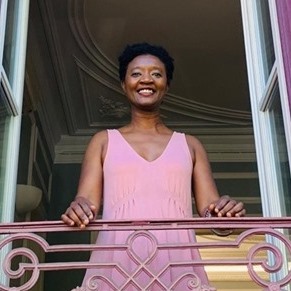| CANAL CES |
| PODCAST |
| TEMAS |
| PESSOAS |
|
Interview by: Gaia Giuliani and Sílvia Roque Este podcast faz parte da série de 28 podcasts realizados sobre o caso português e italiano no âmbito do projeto de investigação de 36 meses (2018-2021) (De)Othering: Desconstruindo o Risco e a Alteridade: guiões hegemónicos e contra-narrativas sobre migrantes/refugiados e “Outros internos” nas paisagens mediáticas em Portugal e na Europa, que pretendeu analisar criticamente representações mediáticas de migrantes, refugiados e “outros internos” em Portugal e na Europa, mapeando as suas interconexões com narrativas produzidas no domínio da segurança e no quadro da Guerra ao Terrorismo. O seu foco, uma análise de Portugal à luz de estudos de caso europeus profundamente afetados por ameaças terroristas (Reino Unido e França) e por fluxos migratórios/de refugiados (Itália e Alemanha), pretende investigar a construção de narrativas transnacionais de risco que permeiam a Europa independentemente da sua exposição “diferenciada”. O projeto foi financiado pelo pelo FEDER – Fundo Europeu de Desenvolvimento Regional através do COMPETE 2020 – Programa Operacional Competitividade e Internacionalização (POCI) e por fundos nacionais através da FCT – Fundação para a Ciência e a Tecnologia (Referencia Projeto: POCI-01-0145-FEDER-029997) ----- English Version This podcast is part of a series of 28 podcasts produced on the Portuguese and the Italian cases as outputs of the research undertaken in the 36 months project (2018-2021) (De)Othering: Deconstructing Risk and Otherness: hegemonic scripts and counter-narratives on migrants/refugees and ‘internal Others’ in Portuguese and European mediascapes that sets out to critically examine media representations on migrants, refugees and ‘internal Others’ in Portugal and across Europe while mapping out their interconnections with particular narratives in the field of security and within the War on Terror. Its focus – an analysis of Portugal in the light of other European cases affected by terrorist threats (United Kingdom and France) and by migrant/refugee flows (Italy and Germany) – aims to explore the construction of transnational narratives of risk pervading Europe regardless of the ‘differential’ exposure to them. The project was funded by FEDER – European Regional Development Fund through the COMPETE 2020 – Operational Programme for Competitiveness and Internationalisation (POCI), and by Portuguese funds through FCT in the framework of the project 029997 (Reference: POCI-01-0145-FEDER-029997).
She argues how media infantilizes representations of Black people by choosing white people to mediate dialogues and speeches of racialized people to maintain and reinforce racist perspectives. Despite greater media airspace of anti-racist movements throughout the past few years, the topic is often marginalized and has its subjectivity nullified. She provides a personal account to exemplify this process. RTP invited her to participate in an interview about a project of Djass - Associação de Afrodescentes, an organization engaged in the fight against racism in contemporary Portuguese society. Beatriz, Angela Barreto - an historian scholar, who helped to create the material of the memorial - and also the Lisbon’s councilor of culture were all invited to speak. When the news piece was broadcast, she found out that she was silenced and her image appeared only as a prop, even though she was one of the proponents of it. From this experience, she realized how her narratives were decontextualized, simplified and misrepresented by putting her in a space where she is an unimportant person, while placing the white commentator’s opinion at a higher value. She notes that her opinions are better received by non-Portuguese journalists, as she found that Portuguese journalists often try to promote her as a way to appease consciences and bring the meritocratic history of the Black woman who is the exception to the rule which “worked”. To conclude, Beatriz highlights how there is a dissonance between narratives, discourses, and practices, and how the media often focuses on good practices of welcoming and diversity when it comes to refugee integration and does not provide reliable reports on everyday violence. pessoas
ligações
|





 Beatriz Gomes Dias is a teacher, activist, and Portuguese politician. In this episode, she talks about the process of getting more involved with the Black movement in Portugal. As a Black woman, and therefore a target of racism and discrimination, she figured that she had to better understand how racism operated in Portuguese society, and she also wanted to become involved in a movement that viewed the suppression of racism as its main objective. Beatriz discusses how anti-racist activism is meaningful because Black bodies occupying the streets and public spaces are strong and impactful images that defy the colonial-white-patriarchal norm.
Beatriz Gomes Dias is a teacher, activist, and Portuguese politician. In this episode, she talks about the process of getting more involved with the Black movement in Portugal. As a Black woman, and therefore a target of racism and discrimination, she figured that she had to better understand how racism operated in Portuguese society, and she also wanted to become involved in a movement that viewed the suppression of racism as its main objective. Beatriz discusses how anti-racist activism is meaningful because Black bodies occupying the streets and public spaces are strong and impactful images that defy the colonial-white-patriarchal norm.